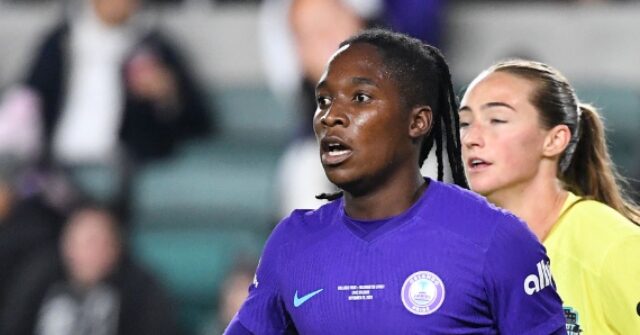The BBC has faced significant backlash after naming Zambian soccer player Barbara Banda as its Female Footballer of the Year, despite her controversial history with gender testing. Banda, 24, was previously removed from her national team due to contested gender test results that led to her withdrawal from Zambia’s squad for the 2022 Women’s Africa Cup of Nations. Women’s rights activists and various organizations have expressed outrage at the BBC’s decision, viewing it as a blow to the integrity of women’s sports. The choice raises questions about gender eligibility and fairness in competitive athletics, prompting a broader discussion on the criteria for female participation in sports.
The controversy is compounded by the fact that Banda did not comply with required testing procedures mandated by the Confederation of African Football, leading her to participate in the women’s category despite doubts about her gender designation. Although Banda has been registered as female at birth, reports indicate she has refused to undergo hormone suppression treatments to lower her testosterone levels. This refusal has resulted in widespread scrutiny and discomfort among women’s rights advocates, who argue that the inclusion of athletes like Banda undermines the integrity and spirit of women’s sports.
Organizations such as the Women’s Rights Network (WRN), For Women Scotland, and Sex Matters have voiced strong objections to Banda’s recognition. Fiona McAnena, a spokesperson for Sex Matters, highlighted a belief among many that Banda may not be female, suggesting that she fits the profile of a male athlete with a disorder of sex development. The assertion is that such individuals, when competing in women’s events, may have an inherent physical advantage due to their biological differences, creating an unlevel playing field. Comparisons have been drawn with other athletes, notably South African runner Caster Semenya, shedding light on the complexities surrounding gender and athletic performance.
The WRN’s statement contends that failing gender eligibility assessments inherently raises concerns regarding an athlete’s sex. This controversy has sparked protests in various locations, with women advocating for clarity and fairness in how gender is defined and evaluated in sports. Prominent figures, including author JK Rowling, have chimed in, sharply criticizing the BBC’s decision as an affront to women’s rights and achievements. Rowling’s comments underscore the frustrations within the community, reflecting a broader sentiment that women’s achievements are being disrespected in the name of inclusivity.
In defense of their decision, the BBC emphasized that Banda was selected based on her athletic achievements, including her participation in high-profile competitions such as the Olympics and the FIFA Women’s World Cup. A spokesperson for the network stated that the shortlist was determined by an expert panel, with the ultimate winner chosen through a public vote. This rationale indicates that the BBC aimed to recognize talent without delving deeply into the contentious issues surrounding gender identity, which has led to accusations of irresponsibility and a lack of sensitivity towards women’s sports.
As this situation unfolds, it highlights the increasingly complex intersection of gender identity, athletic performance, and societal perceptions within the realm of sports. The debate surrounding athletes like Banda raises critical questions about how sports organizations can create equitable environments while honoring diverse identities. The backlash against the BBC reflects broader societal concerns about the implications of redefining sports categories and the need for clear, fair policies that protect the integrity of women’s competitions in a rapidly evolving dialogue on gender. The ongoing discourse will likely shape future discussions and regulations in sports, emphasizing the necessity for clarity, fairness, and respect for all athletes.

